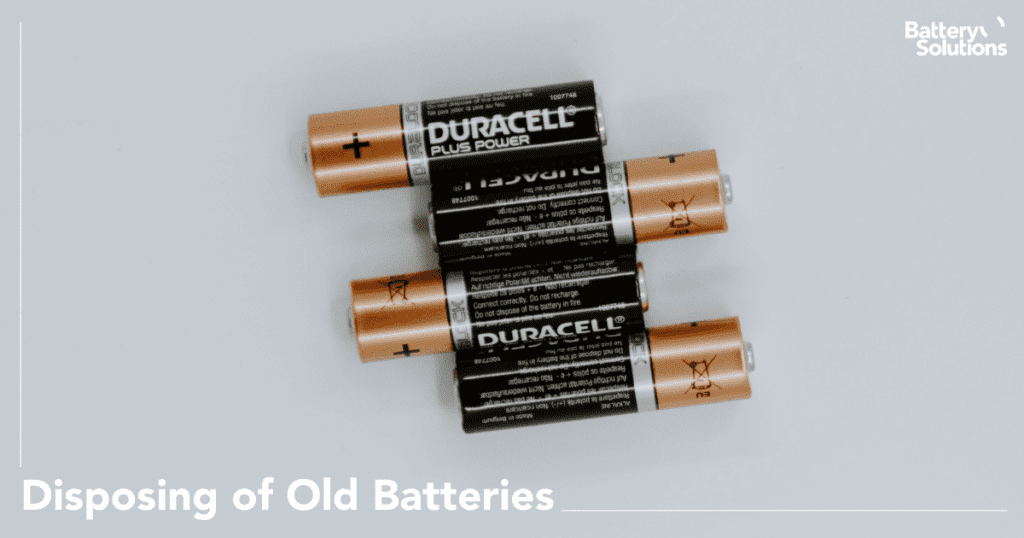
Battery Basics
Touching almost every aspect of our life batteries are an integral part of most electronic devices, from the cell phone in your pocket to the car you drive to work. Coming in many different chemistries from across the periodic table batteries are used now more than ever. This post helps identify these batteries and offers easy-to-follow tips on the proper disposal of batteries.
Battery Types and Safe Disposal
- Rechargeable Batteries: These batteries are rechargeable and come in many different chemistries.
- Sealed Lead Batteries: These small to medium-sized dry cell batteries are sealed in a hard plastic case and are easily recharged. They are used in wheelchairs, scooters, golf carts, field equipment, and more.
- Lithium-ion Batteries: These are a popular type of rechargeable batteries used today. Available in small to large sizes depending on the application. They are available in standard AA and AAA sizes, and could be found in cellphones, tablets, laptop computers, wireless accessories, video cameras, electric and hybrid cars and more.
- Nickel Cadmium Batteries: This type of battery is typically small and dry, commonly found in older devices. They are used in old laptops, old cellphones, toys, medical equipment, and more.
- Non-rechargeable Batteries: Single-use battery, used in various devices such as watches, hearing aids, cameras, and more. Button cell batteries and AA batteries are the best examples of non-rechargeable batteries. They are available in the following chemistries.
- Alkaline & Zinc Carbon: These batteries are labeled as heavy-duty or general purpose and are generally used in devices such as cameras, smoke detectors, toys, watches, etc. They are available in different formats such as AAA, AA, C, D, button cells, and more.
- Lithium: These are dry batteries commonly used in handheld electronics, tire-pressure sensors, memory backup, and several high-temperature applications. They are available in AA, button cell, AAA, small cylinder, and custom sizes.
- Mercury: This battery type use to be used in household items including radios, watches and remote controls. The Battery Act of 1996 phased out batteries containing mercury.
- Silver Oxide: These batteries feature a zinc anode and silver oxide cathode featuring a small amount of mercury till 2003. However, nowadays, mercury isn’t used in these batteries. They are commonly used in watches, hearing aids, cameras, aircraft, and more.
While many of these battery types are offered in non-spillable design they can cause a fire if they get damaged, punctured, improperly charged, or are improperly disposed of at end-of-life. Of these, lithium-ion batteries comprise heavy metals, which could contaminate water or natural resources if disposed of in a landfill. Similarly, lead in sealed lead batteries, and cadmium in nickel-cadmium batteries produce side effects if mix with natural resources. This is why they are categorized under universal waste. Alkaline and zinc-carbon batteries are non-toxic and can leak corrosive materials when they age. Mercury batteries can have a severe impact on human lives, so they are not recommended for use. To avoid toxic side effects from batteries, they must be recycled.
Batteries should not be mixed with regular household waste or recycling. They should be recycled in specific containers and handled with all proper considerations.
Battery recycling is the best solution for all types of household batteries. Reach out to Battery Solutions today to learn more. Or purchase a battery recycling kit today.